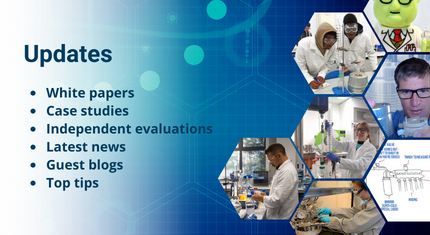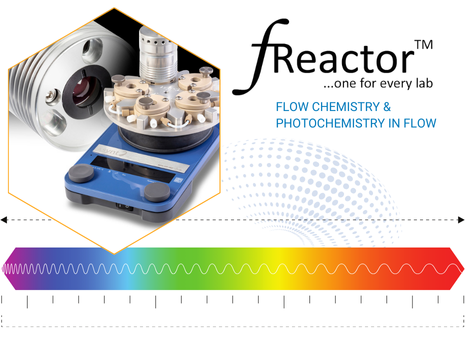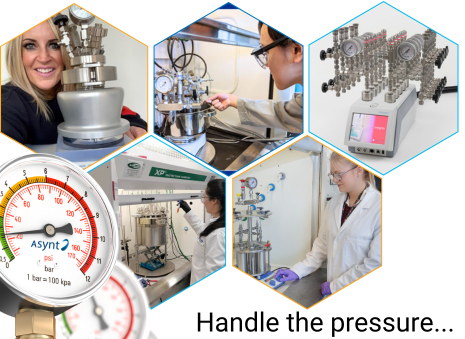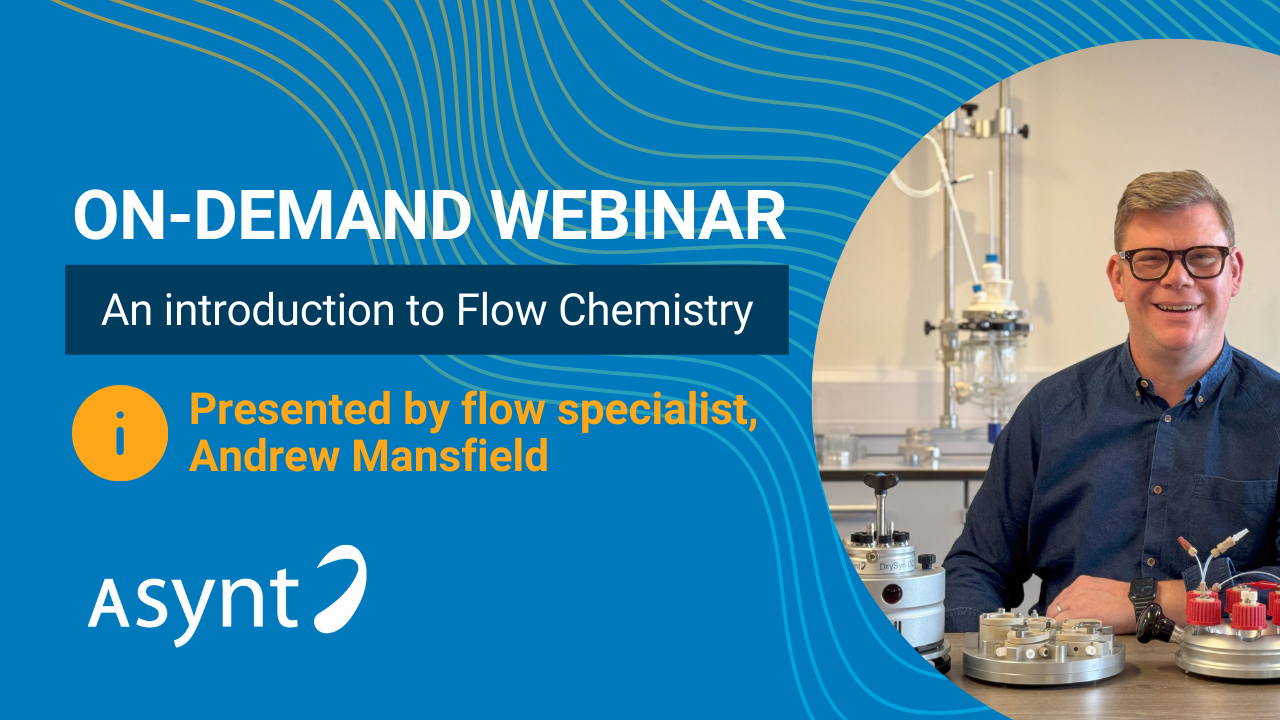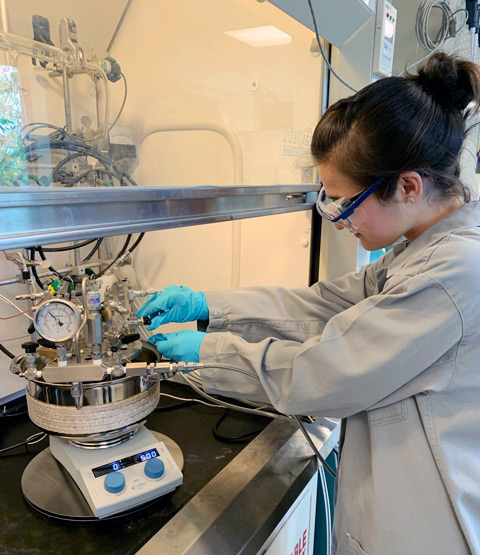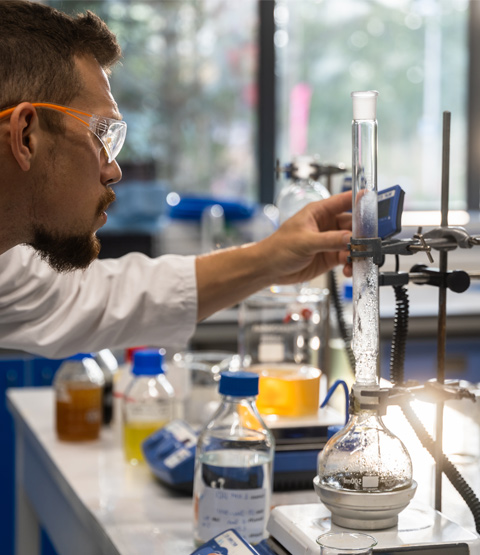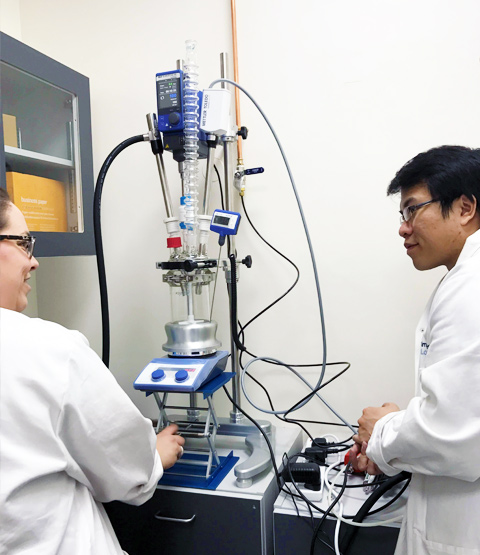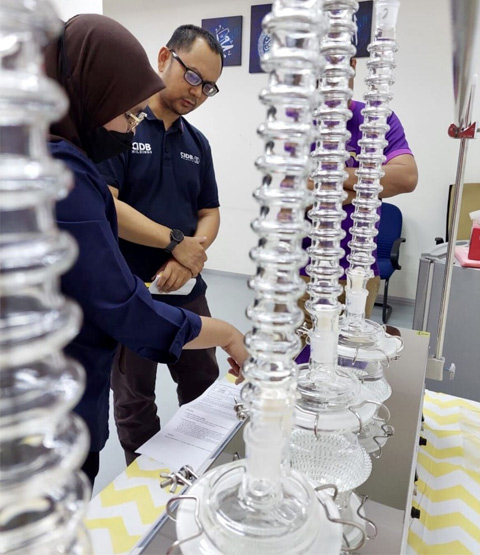A fresh outlook in chemistry technologies
Asynt is a global provider of world-leading technologies and services for scientific research. Developed by chemists for chemists, our laboratory equipment responds to the real demands of industry and academia worldwide, providing solutions from benchtop to kilo lab scale and beyond.
More about AsyntNEW: Making flow chemistry accessible
Flow chemistry specialist, Andrew Mansfield, talks us through the basics of flow chemistry in our latest webinar.
Watch our video!Simple deliveries - worldwide
Our in-house logistics experts ensure that every step of your delivery is easy.
With our in-house engineering, manufacturing and storage facilities we have full control of the supply chain, ensuring delivery of the highest quality laboratory apparatus – delivered when you need it. Our experts are fully qualified to ensure your delivery gets to you promptly, with no fuss or stress!
Find out more
Building a more sustainable & effective way of working in the laboratory
Since inception in 2003, Asynt has developed numerous tools to enhance sustainability in the laboratory. Key examples include the DrySyn® range (a clean, safe alternative to oil baths and heating mantles) both reducing costs in purchasing/disposal of oil and a 35% reduction in energy consumption, and the CondenSyn® range of waterless air condensers which are used all around the world in place of traditional water condensers. CondenSyn reduces water waste & loss of samples, provides accurate & repeatable results, & is lightweight and easy to use.
Find out more about how we’re improving sustainability in the lab
Raising the standard: Asynt celebrates ISO success and environmental recognition
Posted on: June 25, 2025

Asynt achieved ISO 9001 for Quality Management and ISO 14001 for Environmental Management, two internationally respected standards that reflect how we operate behind the scenes, not just the science we support.
Stay tuned!
Register now to receive details of new white papers, the latest tips on sustainable practices in the lab, independent product evaluations, guest blogs and much more.
Find out more